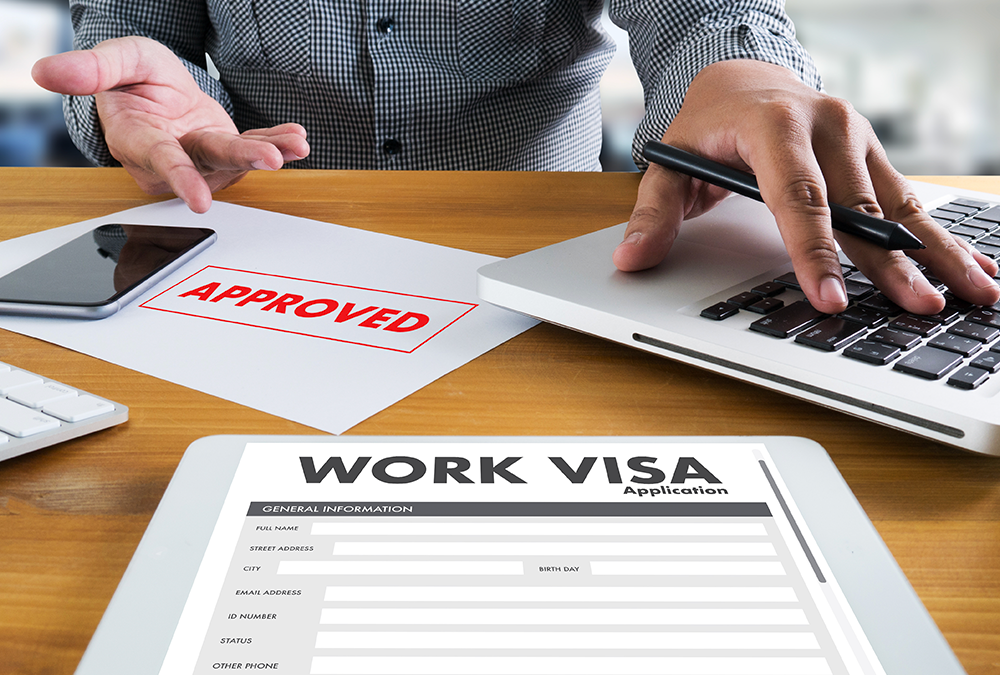(Source: CDF Labor Law by Richard M. Green – February 6, 202)
On February 1, 2024, U.S. Citizenship and Immigration Services (USCIS) issued two regulations that will dramatically change the operation of the H-1B visa program. H-1B visas are available to employers who wish to employ foreign nationals in positions that typically require at least a bachelor’s degree in a particular field. The regulations issued earlier this month change how new H-1B visas are allocated and the filing fees.
H-1B visas are popular. Federal law limits the number of new H-1 visas to 85,000 per year, with 20,000 of those visas set aside for foreign nationals who hold postgraduate degrees from U.S. universities. Because USCIS receives more than 85,000 requests for new H-1 visas per year, USCIS grants these visas through an established lottery system. In March each year, employers submit the names of individuals they wish to sponsor and pay a $10 fee. USCIS selects 85,000 employers who then file petitions for these individuals. If approved, these individuals receive H-1 visas and employment authorization to work for their petitioning employer.
Because the barrier to entering the H-1 lottery is so low, some individuals were using multiple employers to enter the lottery. Last year, USCIS received 780,884 lottery entries, with 408,891 of those entries from individuals who entered using more than one employer. This practice created chaos. The same people were selected multiple times, whereas individuals who only entered once were not selected at all. The individuals who were selected more than once typically only filed one H-1 petition.
To combat this abuse of the selection system, USCIS has changed the way they select winners to a beneficiary-centric model. Now, USCIS is selecting individuals instead of employers. If multiple employers enter the same person in the lottery, all of the employers’ entries will be selected, and one visa will be deducted from the quota. This change to the selection system removes the incentive for individuals to use shill employers to enter the lottery multiple times.
The second way USCIS is combatting abuse of the H-1B lottery is by raising fees. USCIS is raising the fee to enter the H-1 lottery from $10 to $215. Additionally, USCIS is raising the filing fee paid by some employers and complicating the process of computing the filing fee for all employers. Under current regulations, all employers pay $460 to USCIS to adjudicate an H-1 petition. Under the new rule, employers with less than 25 full-time equivalent (FTE) employees and non-profits will continue to pay $460. All other employers will pay $780. Additionally, USCIS is adding a new $600 fee levied against all employers to fund its humanitarian programs. These fees are in addition to the $500 fraud fee and the $750 to $1,500 American Competitiveness and Workforce Improvement Act (ACWIA) worker retraining fee mandated by Congress in 1998. Finally, late last year, USCIS also adjusted the premium processing fee on H-1 petitions from $2,500 to $2,805. The premium processing fee increase goes into effect on February 26, 2024.
The H-1B lottery selection rule goes into effect on March 1, 2024, and the fee regulation goes into effect on April 1, 2024. This year, USCIS accepts entries for the H-1B lottery between March 9th and March 22nd. Shortly after the lottery closes, USCIS will notify the selected individuals and begin accepting H-1B petitions on April 1st.
If you are an employer that utilizes work visas, our human resource experts here at CalWorkSafety & HR can help you navigate these significant immigration changes and complex regulations. Contact us today at https://www.calworksafety.com/contact-us or call (949) 413-6821.
